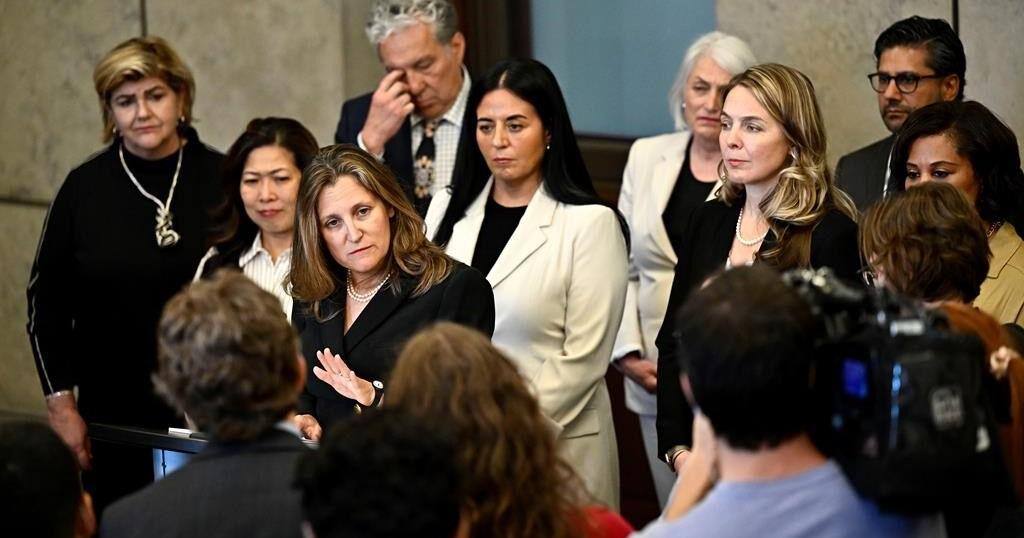A new survey of Canadian tech companies reveals 90 per cent of respondents think the federal government’s changes to its capital gains policy will have a negative effect on the industry.
The finding is part of a survey released Thursday of 143 tech leaders conducted by the Council of Canadian Innovators, an organization representing and advocating on behalf of the sector.
The survey adds further to the outcry that came from the highest echelons of the sector as well as the country’s startup community after the federal government presented the change in its April budget.
The hike raises the portion of capital gains on which companies pay tax to two-thirds from one-half (it also applies to individuals on capital gains above $250,000). The change took effect in June but accompanying legislation still has to be introduced and debated, steps expected to happen in the fall.
A spokeswoman for the office of Finance Minister Chrystia Freeland said the government designed the changes to make the tax system fairer while spurring investment.
“With the increased Lifetime Capital Gains Exemption and the new Canadian Entrepreneurs Incentive, a Canadian entrepreneur will be better off with up to $6.25 million in capital gains,” Navpreet Chhatwal said in a statement.
“It is important to note that even with these tax changes, Canada retains the lowest marginal effective tax rate in the G7 and remains below the OECD average.”
CCI’s members feel the change is a detriment to the sector and the country.
Sixty per cent of the members who responded to the organization’s online survey carried out between June 18 and July 9 feel the capital gains changes will have a “very negative” impact on investment.
Some 86 per cent feel the capital gains changes will hinder their ability to attract and retain talent, especially in a Canadian tech environment that 50 per cent characterized as “unhealthy.”
Benjamin Bergen, the group’s president, said he’s seen data showing the number of Canadians that moved south of the border in 2022 was 122,000— a figure that likely included tech workers seeking higher salaries and entrepreneurs looking to take advantage of the U.S.’s easier access to funding. (Some 67 per cent of survey respondents said their top challenge is accessing capital.)
“That’s really just an indication that it was bad before this capital gains piece came in and now it’s only going to make it worse,” he said.
That sentiment was echoed by several top tech names, including Shopify Inc. president Harley Finkelstein.
Hours after the budget’s release, he wrote on the social media site X, “What. Are. We. Doing?!?”
“This is not a wealth tax, it’s a tax on innovation and risk taking,” he later added. “Our policy failures are America’s gains.”
Tech workers are particularly affected by capital gains changes because they tend to be well paid and many own stock options or their own companies.
Research released by The Dais, a public policy organization based at Toronto Metropolitan University, in June showed the median Canadian tech worker had $84,000 in equity gross value that has not yet been sold. About 1,960 tech workers declared more than $250,000 in capital gains in 2021.
Based on those numbers, the report said 0.20 per cent of tech workers would be affected by the change, compared with 0.15 per cent of non-tech workers.
CCI has been trying to fight the tax since April, when it drafted an open letter to Prime Minister Justin Trudeau and Freeland urging them to rethink their decision. The letter has been signed by more than 2,000 tech workers including Lightspeed Commerce Inc. chief executive Dax Dasilva and 1Password founder Roustem Karimov.
Bergen is hopeful change could still happen.
“There is opportunity for us to try and make it less bad,” he said. “But how do you take something from being a punch in the gut to a slap maybe across the face?”
This report by The Canadian Press was first published July 18, 2024.

























